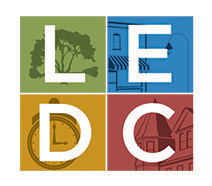
Voting booths in three dry towns were soaked with “yes” votes on ballot referendums to allow their communities to go wet — i.e, to sell liquor.
Unofficial election results Tuesday night show Aldan, Lansdowne and Marple becoming the latest municipalities to allow the granting of liquor licenses for liquor sales. This includes retail sales of liquor ranging from serving a vodka and tonic at a restaurant, or picking up a bottle of wine at the grocery store.
A fourth referendum also was decided Tuesday in Middletown, where voters OK’d the township getting a $8 million, 30-year bond to purchase approximately 80 acres of open space at Forge and Valley roads. The unofficial results at 10:30 p.m. with 20 of 24 machines reporting were 1,694-516.
With all machines reporting from Aldan the electorate voted 472-271 to approve liquor sales in the borough. Giant Food Stores, LLC coordinated the petition drive in the borough to get the referendum on Tuesday’s ballot. Giant spokesman Christopher Brand said last week it has a restaurant liquor license ready to transfer to the supermarket located on Oak Avenue in the borough for plans to open a Beer & Wine Eateries in the store.
The restaurant liquor license allows for the sale of beer and wine in the supermarket. Giant has such a license from its Springfield store on Baltimore Pike in safekeeping status with the Pennsylvania Liquor Control Board. Other active restaurant liquor licenses the supermarket chain has in the county are for stores in Aston, Brookhaven, Havertown, Wayne and Springfield (Sproul Road).
Giant also coordinated the successful referendum effort in Marple, where the electorate approved the question 2,357-1,303, with all machines reporting.
Tuesday’s vote allows Marple to be “wet” township-wide, but the township has allowed beer distributors to operate within its boundaries, and a special municipal golf course license has been issued for the Paxon Hollow Country Club to allow for liquor sales at that location.
Like beer distributors, state stores are also allowed in the township.
Lansdowne was the third town on Tuesday to lift its liquor sales prohibition by a landslide margin of 1,591-387, with all voting machines reporting around 11 p.m.
The Lansdowne Economic Development Corp. spearheaded this referendum campaign to expand its economic footprint in its downtown business district. Liquor sales, said LEDC Executive Director Debbie Brodeur, will help keep restaurants profitable in the town which have generally struggled to stay open for an extended period of time.
“We are overwhelmed by the response,” said Brodeur Tuesday night. “We knew when we were getting the petitions signed that most people seemed in favor of the change, but we had no idea the support would be so positive.
“We called our campaign ‘Thirsty For Change’ because we felt that the time was right and that this would move our town in the right direction. We recognize that this is just the beginning, but what a great first step.”
Lansdowne residents last voted on its dry status in 2015 when they approved a special license for the Lansdowne Theater to sell liquor when it opens as a concert hall in the future.
Lansdowne, Aldan and Marple are the latest towns to go wet, just two years after Swarthmore voted to go in the same direction.
The number of liquor licenses that are allowed by right in any municipality is limited to one for every 3,000 residents. This means Aldan is entitled to one, Lansdowne three and Marple seven. Licenses may be issued by the LCB without borough council approval up to the quota limit per town. Any license looking to transfer into the municipality over the quota must be approved by borough council. They may deny that transfer license if it adversely affects the welfare, health, peace and morals of that community or its residents.
Voters in Aldan, Lansdowne and Marple could vote to go back to being dry in 2023.
Of the 49 municipalities in the county, only Bethel Township and the boroughs of Colwyn, Parkside, Rutledge, Sharon Hill, Upland and Yeadon still prohibit retail liquor sales according to the state. Sharon Hill restricts all liquor sales, beer distributors and state stores in its borough.
Township commissioners in February approved an agreement of sale with Elwyn for the property known as Sleighton Farms contingent on the results of the referendum.
Taxpayers there are looking at a monthly increase of $8.47 to their bills for the average assessed home of $200,000.

